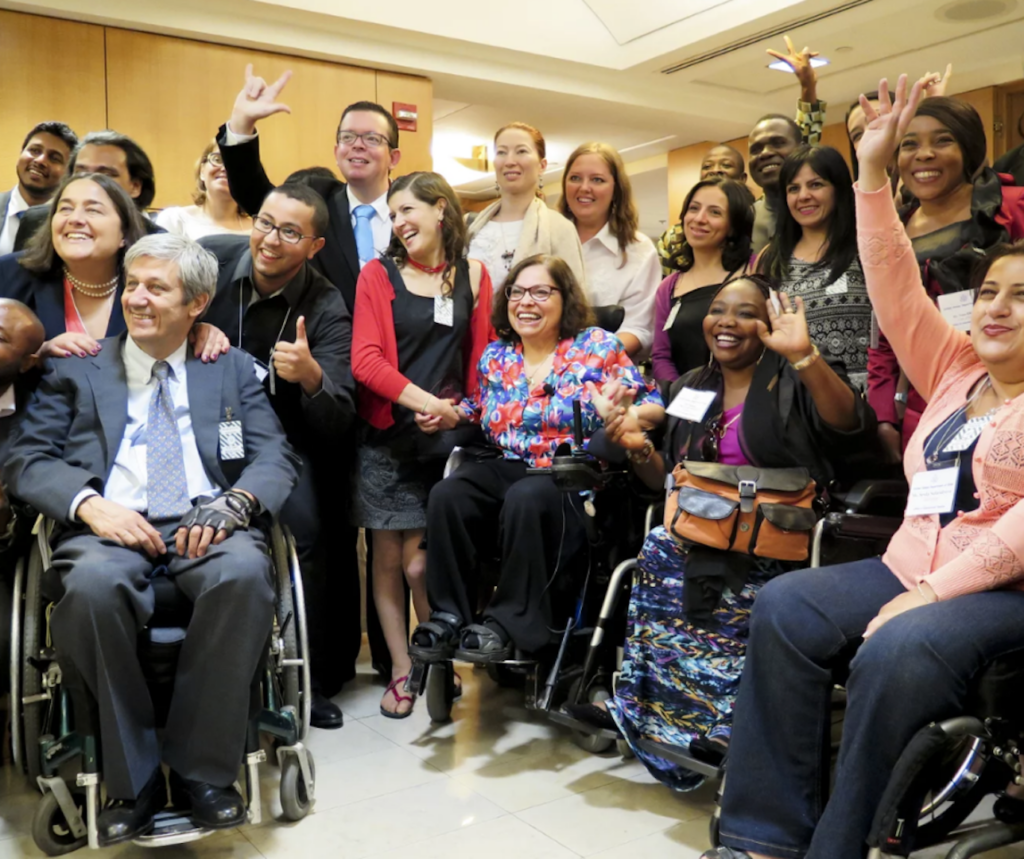Self-AdvocacyLearning how to speak up for yourself, making your own decisions about your own life, learning how to get information so that you can understand things that are of interest to you, finding out who will support you in your journey, knowing your rights and responsibilities, problem solving, listening and learning, reaching out to others when you need help and friendship, and learning about self-determination.

We first want to thank you for your staunch advocacy efforts. We were able to fight together and as a result of those efforts, we were heard and much needed changes were made. We did not see all the changes we were advocating for but rest assured, we are already gearing up to continue the fight. It takes all of us and most importantly your voice and we know we can do this together. Stay tuned for updates on how we will continue the fight because everyone deserves to live a fulfilling quality of life.
Overview
Active citizen participation is an integral part of a functioning representative democracy. As a citizen of the Commonwealth of Virginia, it is your right to voice your opinion regarding pending legislation. There are many ways in which citizens can communicate with their legislators; phone calls, letters, emails, or through visits to their legislative offices.
As a citizen of the Commonwealth of Virginia, one of your greatest responsibilities is to help elect the legislators who represent all Virginians. But your role in the democratic process of government does not end at the polls. By sharing your opinions and ideas with your elected officials, you help them resolve issues and evaluate pending legislation.
There are a number of online resources available on the Virginia General Assembly website to assist you in taking an active role in the legislative process:
- Understand who your Senator or Delegate is by using the Who’s My Legislator? database. Enter your address in the search field when prompted.
- Contact your Senator or Delegate about a particular issue before the legislature takes action on it.
- Make sure you understand the legislative process.
- Meetings of the General Assembly are required by law to be open to the public. Citizen testimony in committee and subcommittee is encouraged.
- Citizens do not need to register in advance to speak before a committee or subcommittee.
- Public hearings may require advanced registration.
Virginia General Assembly
The Who’s My Legislator? service is an online tool where the public at-large can determine what legislators represent them. Users can enter their home address or use map based navigation to see their Virginia House and Senate representatives, as well as those in the U.S. House and Senate.
Tips for Writing to Your Senator or Delegate
Senators or Delegates want to hear from their constituents. Writing an effective letter or email is a way to correspond with them. Be sure to write the Senator or Delegate who represents you. Mass mailings (email or letter) are not as effective as personal correspondence.
- Be sure to include your contact information. Even in an email, include your full name, home address, phone number and email address. You may not get a response from them if you do not include your contact information.
- The date you are writing the letter or email.
- Keep the letter or email brief, to the point, and no more than one page.
Be courteous and do not use vulgar or profane language. - Clearly state the purpose of your correspondence and provide an example of the situation you are trying to address.
- The letter should address one issue.
- Thank the Senator or Delegate for taking the time to read the letter.
- If you are writing about a specific bill or resolution, include the bill or resolution number. Listed below are the written formats for bills or resolutions that should be included in the email or letter:
- Senate Bill: “SB___”
- Senate Joint Resolution: “SJR___”
- Senate Resolution: “SR___”
- House Bill: ”HB___”
- House Joint Resolution: ”HJR___”
- House Resolution: ”HR___”
Useful Links
Contact Info
- Senate Committee Operations
- Voice: (804) 698-7450
- TDD: 1-866-786-2369
- Committeeoperations@senate.virginia.gov
- House Committee Operations
- Voice: (804) 698-1540
- TDD: 1-866-267-1474
- CommitteeOps@house.virginia.gov
- Cover Virginia: Email Your Questions
